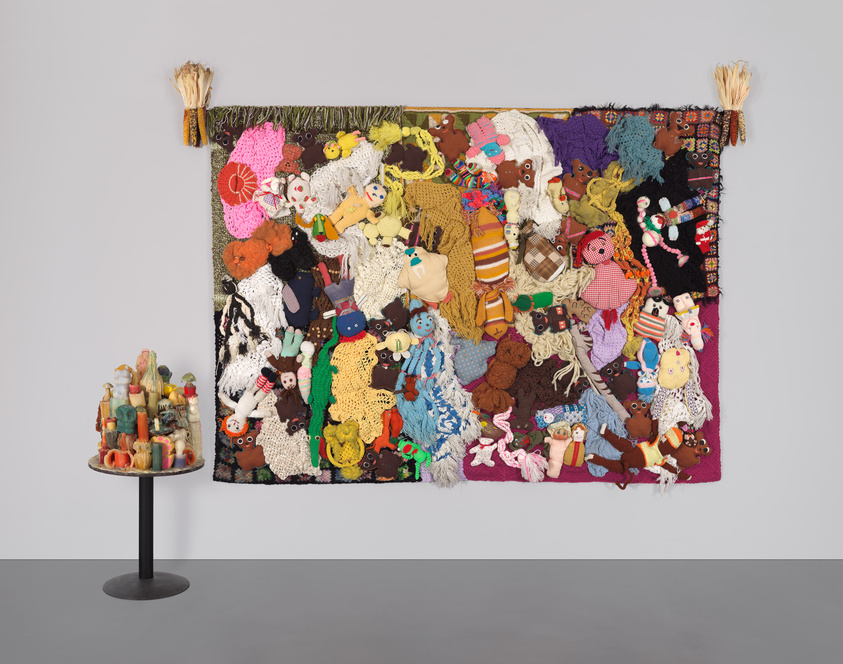Mike Kelley, More Love Hours than Can Ever Be Repaid and Wages of Sin, 1987
Apr 30, 2015
0:00
Mike Kelley, More Love Hours than Can Ever Be Repaid and Wages of Sin, 1987
0:00
Narrator: Mike Kelley’s work More Love Hours than Can Ever Be Repaid is made out of stuffed animals, afghans, and other craft objects.
Mike Kelley: They were all used items that I bought at thrift stores and yard sales. And they're all handmade objects. So they're not the kind of objects that would generally be sold—they’re the kind of objects that would be given away.
Narrator: The work’s surface is tightly packed with objects, suggesting an almost compulsive desire to fill the picture plane. Kelley was interested in the huge amount of time it took people to make all of these craft objects.
Mike Kelley: It had an accumulative effect. If you saw these things as representing love, then it was a massive amount of love. If you saw the things as being inducers of guilt or repayment, then it was more than you could ever pay back. So depending on your point of view, you either see it as super-lovable or super-creepy. And you know, so people tend to see it either way. Like, some people are really repulsed by it, and some people love it to death.
Narrator: Kelley paired this work with the piece on the floor, called Wages of Sin. More Love Hours than Can Ever Be Repaid, Wages of Sin is a massive accumulation of a material we don’t usually associate with high art—candle wax.
Mike Kelley: [It’s] like the kind of sculpture that a teenager would make in their pot smoking room or something like that. And by titling it The Wages of Sin, it gives this kind of morbid overtone, you know, some pseudo-ritualistic kind of thing.
Narrator: In the 1960s, many artists became interested in repetition and accumulation as almost mechanical techniques that downplayed the role of individual expression. In More Love Hours than Can Ever Be Repaid and Wages of Sin, Kelley questions that impulse. With the materials he uses, accumulation doesn’t result in just more of the same. Instead, it creates layers of association, feeling, and meaning.

